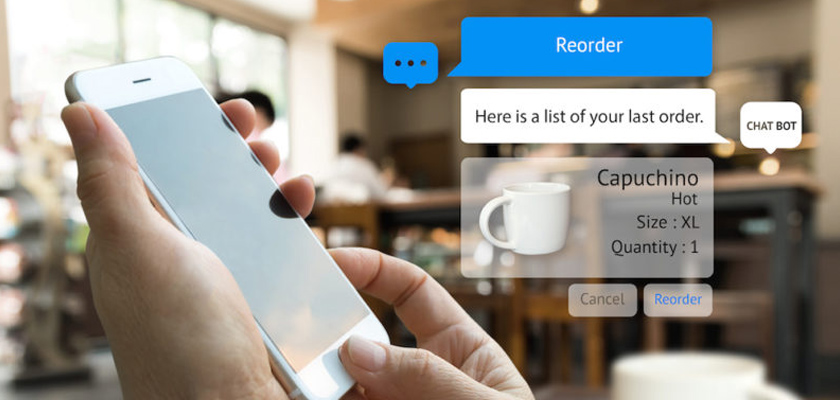Gaining customer loyalty is the goal of any business, but how does this term translate to the market in the digital era?
Customer loyalty entails customer behaviors which are beneficial to a business, and they can be broadly categorized into 3 groups: customer retention, advocacy (support or recommendation of the business and its products) and purchasing.
These behaviors are impacted by different factors, but we can all agree that customer experience – which is inarguably the center of attention in the modern market – plays a huge role in promoting all three. And with the advancement of AI, optimizing the customer experience, right from the very first encounter with a brand, has taken on a whole new level.
A great example of this trend is Glue, an innovative startup company in the field of customer loyalty for small businesses which has recently raised $8M. Based on experience, AI, and vast amounts of consumer data, Glue offers local businesses an expertly tailored loyalty platform that perfectly suits their goals and their customers’ behavior. Not only that, Glue is a self-run tool, executing the loyalty program seamlessly and automatically, turning customers into regulars, and freeing the business owners to concentrate on taking care of their business.

From mobile app development to influencing digital marketing on a larger scale, artificial intelligence and machine learning are becoming the most important tools brands use to encourage customer loyalty – and here’s why.
Predicting customer behavior
With the help of machine learning as a part of AI and Big Data analysis, marketers now have an insurmountable advantage when it comes to establishing insightful predictions.
Using machine learning, systems can gather and analyze data which will help predict things such as:
● Which prospects are likely to respond to certain offers
● Which kinds of goods customers will want to buy next
● The preferred devices and channels used to get to a brand’s website, etc.
These are only a few of the main points, and they’re enough to illustrate how marketing is being transformed as AI is used to analyze data and consequently guide users’ decisions. The possibilities are only growing and the best digital marketing agencies are leading the way.

To find out more about the most relevant digital agencies worldwide and how they apply the latest technology in their strategy, you can use the DAN directory of digital marketing agencies and explore their websites.
Personalizing customer experiences
According to Redonk Marketing, dynamic UX is one of the most important CX trends. By creating a personalized experience, you can take your customer experience to the next level.
AI solutions are enabling businesses to adapt their websites to a user’s needs, offering a personalized experience that drives engagement and makes navigation effortless. With real-time learning technology, AI is able to evaluate a user’s moods and behavior in order to gain insight into their current preferences, and then dynamically modify the website according to the gathered information.
Websites and e-commerce stores are thus able to grasp the opportunity of micro-moments and to optimize the overall user experience by determining the suitable price threshold for each user, displaying personalized ads, serving tailored video content, and offering relevant recommendations.
This highly personalized experience ultimately leads to stronger relationships between consumers and brands and makes the shopping experience enjoyable.
Consequently, the integration of AI is changing the website development landscape, with companies who possess the expertise gaining significant advantage over others.
Marketers who’re looking to implement AI solutions into their websites can use reliable platforms such as DesignRush to search listings of website development companies using various filters, and then compare their profiles and offers accordingly.
Removing communication barriers
Not long ago, the large majority of people were completely skeptical of the thought that AI systems could be able to establish better interactions with humans than actual humans would.
Switch to 2020 and we’re witnessing chatbots being widely used on websites and e-commerce stores. Not only that, but people are actually enjoying communicating with them.
Machine learning has enabled chatbots to communicate naturally and engage in conversations with customers just like a real shopping consultant would. But here’s the thing: it’s likely to do the job even better, as it evaluates the user’s reactions and gives them personalized offers within seconds.

Furthermore, people can now interact with a brand’s chatbot on Messenger, where they’re able to guide conversations and serve as virtual shopping assistants on the platform completely separate from the brand’s website.
This has been a huge shift towards optimizing the customer experience as it helps form an even more cohesive multichannel service experience connecting customer touchpoints.
Along with this, chatbots have been improving contact centers for some time now.
In an era where expectations are extremely high for customer services, chatbots are the only ones who can meet these expectations – providing relevant answers in the shortest time possible and offering support 24/7. With machine learning, these virtual assistants are able to evolve and provide better service, which plays a crucial role in promoting customer loyalty.
As technology advances and new solutions arise, the latest developments in AI are shaping the customer experience in the digital era.
Furthermore, brands and developers are focusing their energy on how to optimize the customer experience to the point that it will actually encourage loyalty in an extremely competitive environment.
In light of that, it’s fascinating to see how machine learning is being used to make highly personal and human interactions that essentially entice attachment.
It sounds paradoxical, which makes the whole phenomenon even more fascinating: with everything being moved to the digital world, humans alone can no longer provide customers with meaningful interactions and personalized experiences without the help of sophisticated AI.

